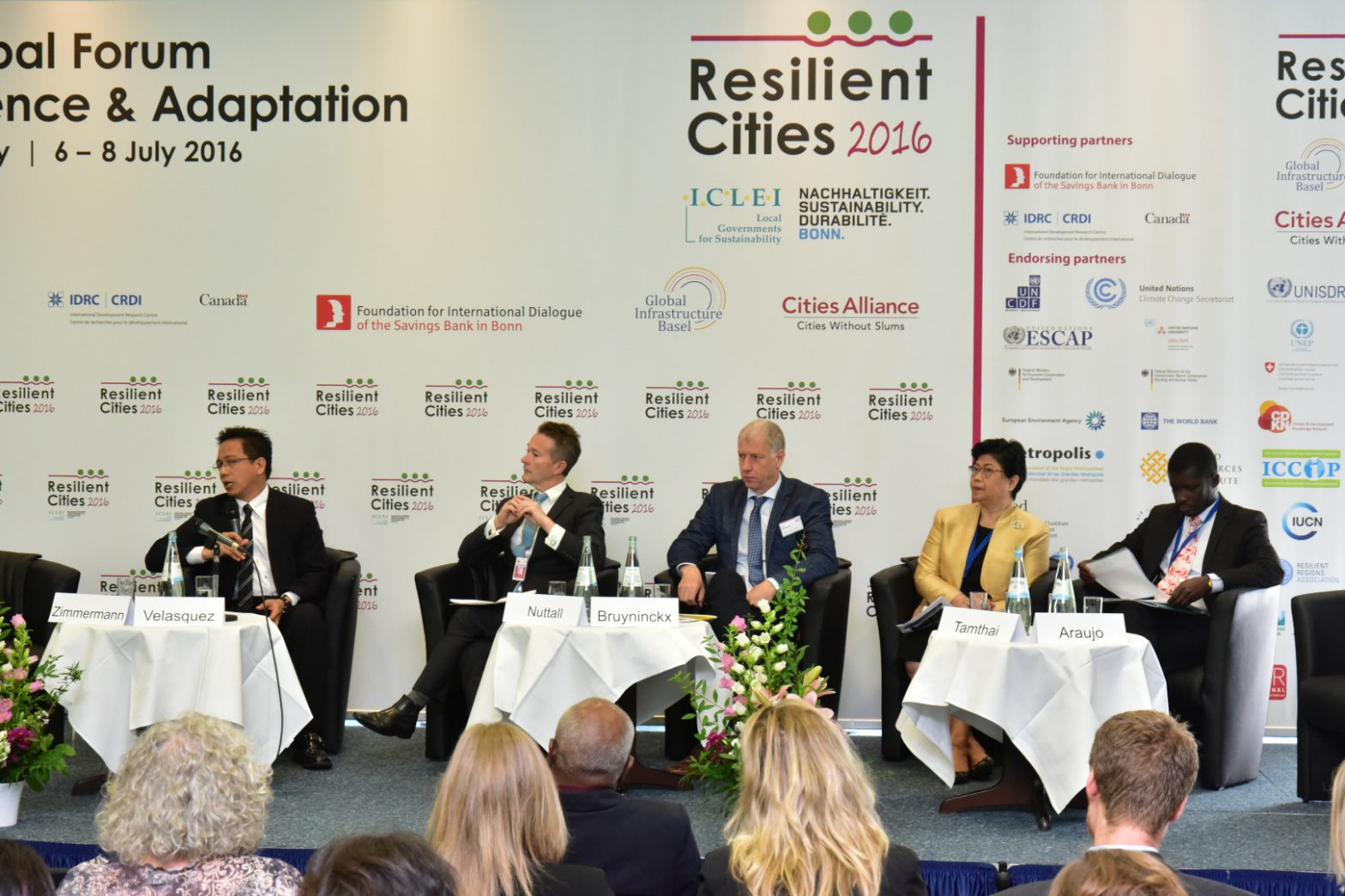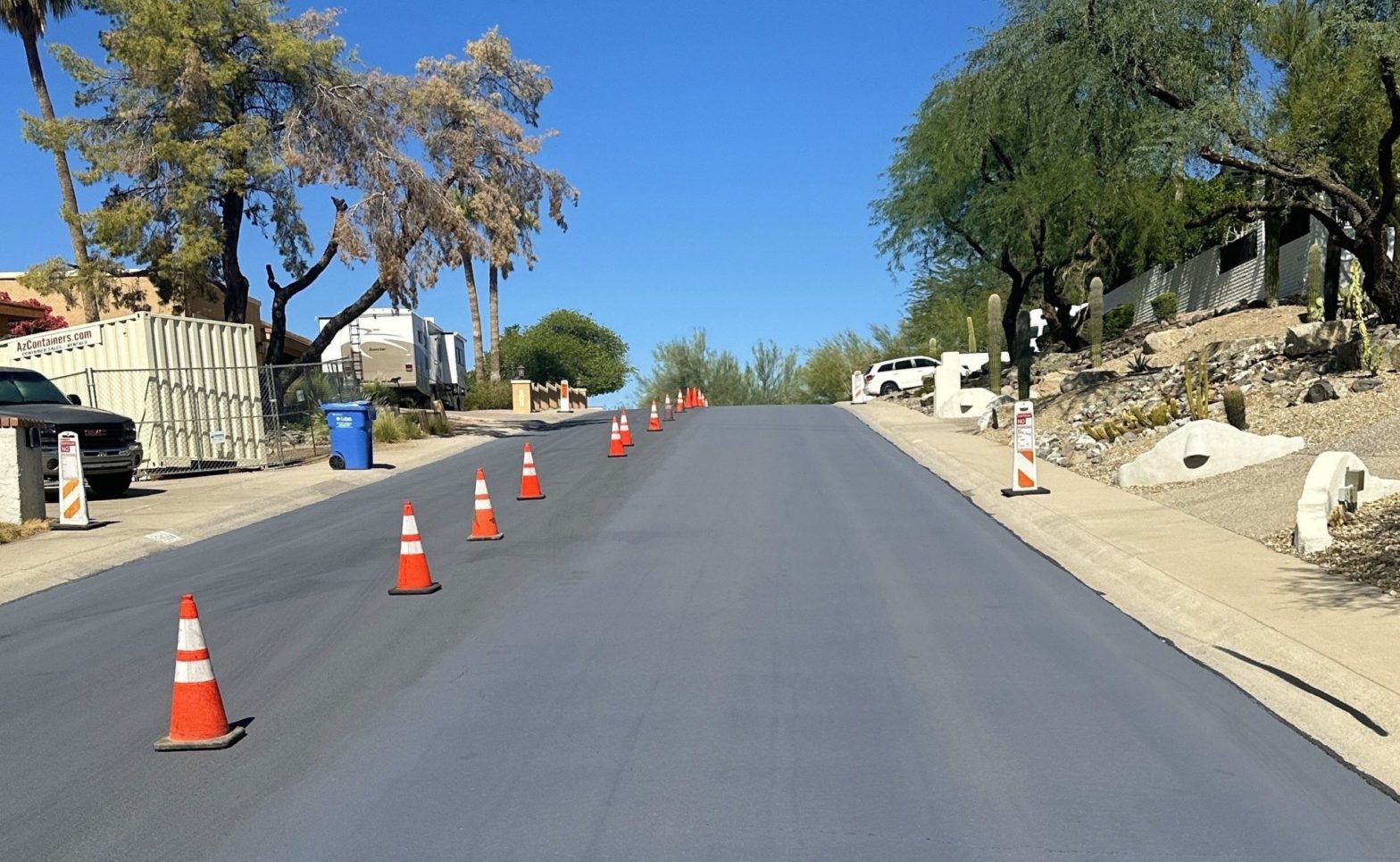
Photo: 27515570294_4eb3e730a8_o
Economic losses can be countered by more resilient cities
07 July 2016
by Nick Michell
Huge economic losses from climate related disasters can only be reduced if cities become more resilient and update existing strategies, the opening plenary panel stressed yesterday at ICLEI’s Resilient Cities forum, taking place in Bonn, Germany.
“In the last 10 years, record-breaking temperatures and rainfall have resulted in US$1.4 trillion in losses,” said Jerry Velasquez, Chief of Advocacy and Outreach, United Nations Office for Disaster Risk Reduction (UNISDR). “In fact only 30 percent of all disasters have recorded data on economic losses, so it could actually be up towards US$5 trillion, which is a lot of money, that cities could be investing in social services.”
For that reason, Velasquez explained, the Sendai Framework for Disaster Risk Reduction, Sustainable Development Goals (SDGs) and Paris Agreement have actually shifted the thinking from dealing with disaster loss to disaster risk. It is a movement away from waiting for disasters to happen and then dealing with them, to working on prevention and mitigating the possible impacts; reducing the damage, instead of compensating the damage.
The conceptual shift is so important as, despite the significant climate mitigating developments occurring around the world, there is still an inability by local and national governments to address the challenge of economic loss. This is not just a problem for poor countries, but also for wealthy countries, with the largest economic losses occurring in Europe, the US, New Zealand, Japan, amongst others.
Cities are in a position to reduce these economic losses, and are importantly now being seen as vital stakeholders.
“Transformative optimism fuelled advocacy in the lead up to Paris and it has paid off with the inclusion of cities as key actors, and the growing number of institutional partners that now regard cities as eligible for funding and consulting,” said Ashok Sridharan, Mayor of Bonn. “For the first time ever, loss and damage have been put in the centre of the table along with mitigation and adaptation.”
The SDGs and Sendai Framework have now adopted outcome targets that aim to reduce the number of people dying from disasters, the number affected by natural disasters and the direct economic loss.
According to Velasquez, to achieve these targets, cities must update their strategies and ensure they are inclusive, safe, sustainable and resilient by 2020. Even cities that have existing plans need to change as the last ten years have clearly shown that these strategies have failed to address the issue of economic losses.
The need for cities to take immediate and proactive action was emphasised by Monika Zimmerman, Deputy Secretary-General of ICLEI, during the plenary session as she highlighted the fact that since the beginning of 2015 to 2016 there have been 198 natural catastrophes worldwide, the highest ever recorded in a single year.
“Since we last met the unprecedented amount of natural disasters have caused huge economic losses, with Asia being hit the hardest,” said Zimmerman. “In 2015 the USA experienced the hottest weather since 1850, while worldwide, 2016 has seen the warmest March and April since records began. Just recently, here in Germany 10 people were killed due to sudden, severe flooding. Resilience is all about how we prepare for disasters.”








